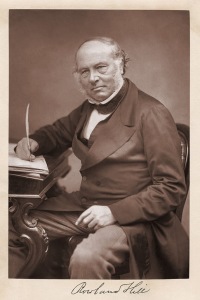The nineteenth century was a wonderful time for progress. Rapid scientific advances and technological innovations created a mindset that change was possible, even preferable, and that change could be a positive force. The current attitude is “if it ain’t broke, don’t fix it.” In the nineteenth century, people looked for better ways to do things. People like Thomas Edison didn’t happen upon new ideas; they actively looked for things to invent. Rowland Hill wasn’t just an innovator; he called himself a “Reformer.” He turned his attention to Great Britain’s postal service in 1838, and philately is the result.
Postal Service worldwide was always slow, expensive, and a bureaucratic mess. Great Britain was no worse than many countries, but costly and cumbersome postal service was becoming a problem for England’s increasingly powerful business class. Letters in 1838 were charged by weight and the number of sheets of paper that were sent (that is why folded letters, essentially one piece of paper that was written on and folded up to resemble a letter, were so popular). Letters could be sent prepaid or collect. Most were sent collect for the simple reason that service was unreliable, and the surest way to guarantee delivery was to have the letter paid for when it arrived. This meant that with each delivery of the mail, the postal agent needed to examine each delivered letter and figure out what was owed, which varied letter to letter depending on where it came from and its weight. Delivery, needless to say, was slow. Rates were so high that postal customers resorted to subterfuge to cut costs. Members of Parliament enjoyed the Free Frank


